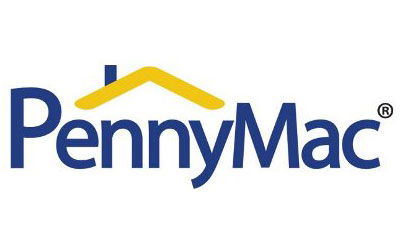Getting a mortgage used to mean stacks of paperwork, long wait times, and multiple visits to the bank. Today, online mortgage lenders have changed the game. You can compare rates, get prequalified, and even close on your home—without stepping into a bank.

Many online lenders offer competitive interest rates, lower fees, and faster approvals than traditional banks. Some provide loan options with low down payments, while others focus on speed or a fully digital experience. Whether you’re a first-time homebuyer or refinancing, choosing the right lender can make all the difference in your mortgage experience.
10 Best Online Mortgage Lenders of 2025
Online lenders vary in how they operate. Some offer a fully digital experience, while others let you work with a loan officer for extra guidance. The right choice depends on your financial situation, timeline, and preference for digital convenience or personal support.
Here are some of the best online mortgage lenders of 2025, each offering unique benefits to fit different home-buying and refinancing needs.
Rocket Mortgage
Rocket Mortgage, a division of Quicken Loans, offers a completely online mortgage process with advanced digital tools that make applying for a home loan easy.
Better.com
Better.com is a fully digital mortgage lender focused on speed, transparency, and lower costs. The company eliminates many traditional fees, such as application and origination fees, making it a cost-effective choice for borrowers.
SoFi
SoFi Mortgage offers a fully online mortgage experience with a focus on speed and affordability. Borrowers can complete the prequalification and application process entirely online, often closing in less than 30 days.
Mr. Cooper
Mr. Cooper is a well-known mortgage lender that offers a streamlined online application process along with strong customer support.
PNC Bank
PNC Bank offers a blend of online convenience and in-person service, making it a great option for borrowers who want flexibility.
New American Funding
New American Funding is a national mortgage lender known for its inclusive lending practices and wide range of loan products.
Tomo
Tomo is a tech-driven mortgage lender that eliminates traditional credit score requirements, making homeownership more accessible for buyers with strong financial habits but limited credit history. The lender focuses on a fast, fully digital process with competitive rates and no lender fees.
Rate
Rate is a digital mortgage lender known for its fast application process and wide variety of loan options. Borrowers can complete most of the process online while still having access to loan officers for personalized guidance.
Penny Mac
PennyMac is a well-established mortgage lender that focuses on providing a wide variety of loan products to fit different financial situations. The company offers a fully online application process but also provides access to loan specialists for those who want more personalized assistance.
AmeriSave Mortgage
AmeriSave Mortgage is a digital-first lender offering a fast and convenient online application process. With competitive rates, no application or lender fees, and a broad range of loan products, it appeals to borrowers looking to save time and money.
Pros & Cons of Getting a Mortgage Online
Online mortgage lenders have made the home loan process faster and more accessible, but there are still trade-offs to consider. Here’s a look at the benefits and drawbacks of applying for a mortgage online.
Pros
- Lower costs: Many online lenders have fewer overhead expenses than traditional banks, which can lead to lower interest rates and fewer fees.
- Faster approval times: Automated systems allow for quick prequalification and streamlined underwriting, helping mortgage borrowers secure financing faster.
- Convenience: The entire process, from application to closing, can often be done online, making it easier for those with busy schedules.
- More loan options: Some online lenders offer specialized products, including loans for borrowers with unique financial situations or lower credit scores.
Cons
- Limited personal interaction: Online lenders don’t always provide in-person support, which may be a drawback for borrowers who prefer direct communication with a loan officer.
- Technology barriers: Not everyone is comfortable with digital platforms, and technical issues can slow down the application process.
- Less flexibility on fees: While some lenders allow for negotiation, others have set pricing structures that may not be as adaptable as traditional banks.
- Reputation concerns: With so many online lenders in the market, it’s essential to research a company’s credibility and read customer reviews before applying.
For many borrowers, the convenience and cost savings of online lenders outweigh the downsides. However, those who prefer a hands-on experience may still find value in working with a local bank or mortgage broker.
How to Find the Best Online Mortgage Lender for You
Choosing the right online mortgage lender isn’t just about getting the lowest rate. It’s about finding a lender that fits your financial situation and homebuying goals. Here’s what to consider when comparing online mortgage lenders.
Compare Mortgage Rates the Right Way
A low mortgage rate can save you thousands over the life of your loan, but rates can change daily and vary by lender. Instead of focusing on the advertised rate, look at the annual percentage rate (APR), which includes interest and fees.
Use online rate comparison tools to get multiple quotes, but make sure you’re comparing the same loan type, term length, and minimum down payment required. Prequalification with a soft credit check can help you estimate your rate without impacting your credit score.
Look at Fees and Closing Costs
Lenders may offer attractive interest rates but offset them with high fees. Check for application fees, origination fees, and closing costs. Some online lenders eliminate these charges, while others may allow you to roll them into the loan. Asking for a Loan Estimate will give you a full breakdown of costs before committing.
Consider Loan Options That Fit Your Needs
Different mortgage lenders specialize in different types of loans. If you have a lower credit score, some lenders offer FHA or VA loans. If you’re buying in a rural area, USDA loans might be available. For larger loan amounts, some lenders focus on jumbo mortgages. Make sure the lender you choose offers loan programs that match your financial profile and homebuying goals.
Customer Support Matters More Than You Think
Even with an online mortgage, good customer support can make a big difference. Some online mortgage lenders rely on chatbots and email, while others provide live agents and direct access to loan officers. If you prefer hands-on help, look for a lender that offers phone support or in-person consultations at branches.
Check Digital Security and Fraud Protection
Online lenders handle sensitive financial data, so security is key. Some lenders offer two-factor authentication, encryption for document uploads, and fraud monitoring. A lender with strong cybersecurity measures can help protect you from identity theft and data breaches.
Speed and Ease of Loan Processing
Some lenders can close a mortgage in as little as 10 to 15 days, while others take 30 days or more. A fast process can give you an edge in competitive housing markets. Lenders with automated underwriting, e-signature capabilities, and digital document uploads tend to move more quickly.
Finding the best online mortgage lender means balancing rates, fees, customer service, and digital security. Shopping around and comparing multiple lenders will help you secure a mortgage that fits your needs without unnecessary costs or delays.
Tips for Applying for a Mortgage Online
Applying for a mortgage online is faster and more convenient than ever, but preparation is key. Taking the right steps can improve your chances of approval and help you secure better loan terms.
Get Your Finances in Order
Mortgage lenders focus on two main factors when evaluating mortgage applications:
- Credit score: A higher score can qualify you for lower interest rates. Check your credit report for errors, pay down outstanding debts, and avoid opening new credit accounts before applying.
- Debt-to-income (DTI) ratio: Lenders compare your monthly debt payments to your income. Most prefer a DTI below 43%, though lower is better. Reducing debt or increasing income can improve your chances of approval.
- Stable income history: Expect to provide recent pay stubs, tax returns, and W-2s. Self-employed borrowers may need to submit additional documentation, such as profit and loss statements.
- Cash reserves and down payment: Some lenders require proof of savings for closing costs and reserves. Even with low down payment options, having extra funds can make approval easier.
Know the Difference Between Prequalification and Preapproval
Many online lenders offer both prequalification and preapproval, but they’re not the same:
- Prequalification: A quick estimate based on self-reported information. It gives you a general idea of how much you can borrow, but isn’t a firm commitment from the lender.
- Preapproval: A more in-depth process where the lender verifies your financial details and credit history. A preapproval letter strengthens your offer when shopping for a home.
Getting preapproved before house hunting can make you a more competitive buyer, especially in a competitive market.
Use Online Tools to Your Advantage
Most online lenders offer calculators to estimate monthly mortgage payments, affordability, and loan options. Use these tools to compare rates, test different down payment amounts, and explore loan terms before applying.
Stay Organized and Responsive
- Upload documents promptly: Online applications move faster when you provide requested paperwork quickly.
- Check for real-time updates: Many online mortgage lenders have dashboards to track your loan status.
- Communicate with your lender: If you have questions or concerns, reach out to a loan officer for clarification.
A strong application can speed up approval and help you qualify for better terms. Improving your financial profile and knowing what to expect can make the process much smoother.
Questions to Ask Your Lender
Before you commit to a mortgage, ask the right questions. Knowing the loan terms, fees, and approval criteria upfront can help you avoid costly surprises later.
What factors determine my APR, and how can I lower it?
Lenders calculate your annual percentage rate (APR) based on your credit score, down payment, loan amount, and overall risk profile. Ask how different factors impact your rate and whether improving your credit or increasing your down payment could get you a lower APR.
What fees will I pay, and are any negotiable?
Mortgage costs go beyond interest rates. Ask about origination fees, appraisal fees, underwriting fees, and closing costs. Some lenders allow negotiation on certain fees, while others have non-negotiable pricing structures.
How long does the rate lock last, and is there a fee?
Interest rates can change daily, so many lenders offer rate locks to secure your quoted rate. Find out how long the lock lasts, whether it extends through closing, and if there’s a fee for locking in your rate. Also, ask about “float-down” options that let you secure a lower rate if market rates drop before closing.
What’s the estimated timeline for approval and closing?
Ask how long the lender typically takes to process loans, from application to closing. If you need to meet a specific deadline, such as a home purchase agreement, make sure their timeline aligns with yours.
What is the minimum credit score and down payment needed to qualify?
Different lenders have different requirements. Some offer FHA or VA loans with lower credit score thresholds, while others require stronger financial profiles. Knowing the minimum qualifications upfront helps you gauge your approval odds.
What is the minimum down payment required for my loan?
Different loan types and lenders have varying down payment requirements. Conventional loans usually require at least 3% to 5%, while FHA loans require a minimum of 3.5%. Some programs, like VA and USDA loans, allow qualified borrowers to buy a home with no down payment.
Ask your lender about the specific minimum down payment needed for your situation, and whether a larger down payment could lower your interest rate or eliminate private mortgage insurance (PMI).
Will you service my loan after closing?
Some lenders handle loan servicing in-house, while others sell loans to third-party servicers. If your loan will be transferred, ask who will manage payments and customer support.
Do you consider alternative credit data?
If you have limited credit history, some lenders factor in rent, utility, or cell phone payments. This can be helpful for borrowers who don’t have extensive credit but maintain good financial habits.
What happens if I need to make extra payments or refinance?
Find out if your loan has prepayment penalties or restrictions on refinancing. Some lenders charge fees for early payoff, while others allow extra payments without penalties.
Asking the right questions upfront can help you find the best mortgage terms and avoid unexpected costs. A transparent lender will be upfront about fees, rate options, and loan servicing, giving you confidence in your mortgage decision.
Bottom Line
Finding the right online mortgage lender takes more than just looking at interest rates. Comparing multiple lenders ensures you get the best combination of rates, fees, and loan terms for your situation.
Before committing, research each lender’s reputation by reading customer reviews and checking with organizations like the Consumer Financial Protection Bureau (CFPB) and the Better Business Bureau (BBB) for any complaints or red flags.
The best lender for you will depend on your priorities—whether that’s speed, low fees, customer service, or flexibility in loan options. Taking the time to shop around and ask the right questions will help you secure a mortgage that fits your needs and budget.













